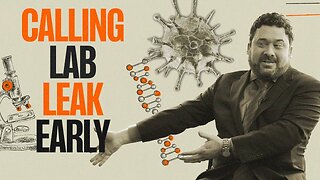Anyone w/ Family or Friends Who’ve Returned from Deployment PLEASE Check on Them: 🚨 HELP IN DESCRIPTION
**Any of us who have family members or friends who’ve returned from deployment PLEASE check on them regularly. Quite a few need help returning home mentally healthful and are good at hiding it!
THANK GOD for this trooper 🙏🏼💔
#HelpOurVetsCompletelyReturnHome 🙏🏼
Video source: Politically Incorrect Joker 🃏 @riki7s Truth Social post https://truthsocial.com/@riki7s/posts/110765159840976530
================
Are you a Veteran in crisis or concerned about one?
To connect with a Veterans Crisis Line responder anytime day or night:
Dial 988 then Press 1.
Start a confidential chat.
Text 838255.
If you have hearing loss, call TTY: 800-799-4889.
WEBSITE: https://www.mentalhealth.va.gov/suicide_prevention/
Are you a Veteran in crisis or concerned about one?
To connect with a Veterans Crisis Line responder anytime day or night:
Dial 988 then Press 1.
Start a confidential chat.
Text 838255.
If you have hearing loss, call TTY: 800-799-4889.
Overview
VA’s top clinical priority is preventing suicide among all Veterans — including those who do not, and may never, seek care within the VA health care system. As a Veteran, you can play a role in fulfilling this mission, and VA can equip you with tools to do your part. You can explore suicide prevention resources to build networks of support among community-based organizations, Veterans Service Organizations, health care providers, and other members of your community that strengthen protective factors for Veterans.
If you are seeking answers following an attempted suicide or the loss of a loved one by suicide, please visit the Coping & Support page to find help as you navigate this process.
Veteran Self-Help Resources
Make the Connection
Make the Connection features stories of hope and recovery from Veterans like you. Watch Veterans and their family members share real stories of strength and recovery, find useful information and local mental health resources and explore ways to show your support.
Veteran Training
This self-help portal provides tools to help Veterans overcome everyday challenges in an entirely anonymous environment. Using the tools, Veterans can work on problem-solving, manage their anger, develop parenting skills, and more. The free tools are based on mental health practices that have proven successful with Veterans and their families.
Mobile Apps that support Mental Health and Wellness
Search for free, available VA apps that equip you with tools and information to assist you in managing symptoms and stress, learning to practice mindfulness and strengthening parenting skills.
You are Not Alone. Connect with Care Now.
Find Local Support
Start your search to find local mental health and suicide prevention resources.
Search Resources
Connect with your Suicide Prevention Coordinator today
Each VA medical center has a Suicide Prevention Coordinator to connect you with the counseling and services needed. Find your local suicide prevention coordinator here.
Find Suicide Prevention Coordinator
Learn More About Suicide Prevention
View prevention resources
Find information for coping and support
View Veteran suicide data and reporting
In Veterans’ Own Words
=====
Pittsburgh Post-Gazette: “Help for vets: Trump deploys more firepower against suicides”
Veterans
Issued on: January 11, 2018
Importantly, the President’s order not only authorizes services for all veterans during their transition periods but directs Cabinet-level agencies to ensure those services are plentiful and available.
Help for vets: Trump deploys more firepower against suicides
Editorial
Pittsburgh Post-Gazette
January 11, 2018
Members of the armed forces put their lives on the line for the nation, so it’s only appropriate that the federal government does all it can to protect them from post-service psychiatric problems. President Donald Trump sent that message Tuesday with an executive order enhancing mental health services for recently discharged veterans. Suicide rates among former service members remain high, especially among those fresh out of uniform, and all reasonable efforts to stanch the epidemic are worth making.
Mr. Trump’s order makes a wide range of mental health services available to all veterans as they transition back to civilian society. Until now, a full complement of services was available only to about 40 percent of those recently discharged, most of them from the combat ranks.
…
Importantly, the President’s order not only authorizes services for all veterans during their transition periods but directs Cabinet-level agencies to ensure those services are plentiful and available. For example, Mr. Trump directed the Department of Veterans Affairs to expand its use of telemedicine, which has the potential to connect veterans with care no matter where they live, and its use of technology that allows former service members to schedule appointments online.
Veterans also may schedule appointments in the private sector if the VA system cannot serve them quickly enough — an important allowance given the VA’s past failures to provide prompt treatment.
SOURCE: https://trumpwhitehouse.archives.gov/briefings-statements/pittsburgh-post-gazette-help-vets-trump-deploys-firepower-suicides/
FULL EDITORIAL: https://www.post-gazette.com/opinion/editorials/2018/01/11/Help-for-vets-Trump-deploys-more-firepower-against-suicides/stories/201801310021
============
Military News
Trump Signs Executive Order Creating Task Force to Stop Vet Suicide
5 Mar 2019
Military.com | By Patricia Kime
President Donald Trump signed an executive order Tuesday aiming to stem the number of suicides among veterans by creating a high-level task force to develop research strategies and plans to tackle the problem and provide grants for communities to help former troops who are struggling.
Calling suicide among veterans "a tragedy of staggering proportions," Trump said the problem can be solved only if the entire country works together.
"To every veteran, I want you to know an entire nation of more than 300 million people is behind you. You will never, ever be forgotten. We are with you all the way," he said.
The task force will develop a "public health road map" that will include a national research strategy for studying suicide risk factors and intervention efforts, as well as proposals for equipping states and communities with the resources needed to undertake suicide prevention and quality-of-life initiatives for former service members.
The order, known as the President's Roadmap to Empower Veterans and End a National Tragedy of Suicide, or PREVENTS, also seeks to network national and local programs to actively engage veterans "rather than a passive system wherein the onus for engagement is placed on veterans."
According to Department of Veterans Affairs data, an average 20 veterans die each day by suicide, and vets have a suicide rate 1.5 times greater than non-veterans. About 70 percent of veterans who die by suicide are not enrolled in VA care, officials said.
During the signing ceremony, Frank Larkin, a former Navy SEAL who served as the U.S. Senate sergeant of arms from 2015 to 2018, urged that the research on suicide prevention extend beyond behavioral health and address other possible causes, such as blast injuries and traumatic brain injury.
Larkin's son, Ryan Larkin, died April 23, 2017, by suicide. He had a microscopic brain injury known as interface astroglial scarring, which affected his cognitive processes. As with chronic traumatic encephalopathy, the disease that affects some professional football, hockey players and veterans, it can only be detected post-mortem.
Addressing the research, Frank Larkin said that the nation needs a "Manhattan-like Project."
"We need the science to illuminate the path forward. I'm convinced we can solve this. ... We need collaboration, integration of data, unity of effort ... a holistic approach with a heightened sense of urgency to push the scientific research," Larkin said.
During past administrations and the previous Congress, lawmakers and members of the executive branch have focused on suicide prevention efforts, yet rates among veterans have remained steady or increased.
Last year, Trump signed an executive order to ensure that transitioning service members have access to counseling and mental health services during the first year after they leave service -- a period during which they face a higher risk for suicide.
At least two bills have been introduced in this Congress to improve the VA's suicide prevention and national oversight efforts, and the House Veterans Affairs Committee on Wednesday plans to hold a round table on suicide prevention efforts, awareness and treatment.
The suicide rate among veterans ages 18 to 34 rose more than 10 percent from 2015 to 2016; the rate of suicides among this population is roughly 45 deaths per 100,000 veterans. By contrast, the rate among civilian males ages 25 to 34 is 26 per 100,000.
At the signing ceremony, Thomas Winkle, director of the Arizona Coalition for Military Families, said that proactive outreach by collective communities works. Winkle said that when Arizona faced one of the highest rates of suicide among its National Guard troops, the state's VA medical centers, the Arizona Department of Veterans Services, health care groups, the community and the National Guard came together to address the issue.
According to Winkle, the effort caused the suicide rate to drop to zero.
"It can be done. We have the ability to prevent suicides to make lives more empowered, to make lives have more meaning," he said.
VA Secretary Robert Wilkie noted that last week, two doctors and a hospital technician "risked their lives" to save a veteran with a gun at the West Palm Beach VA Medical Center. Two of the VA employees were wounded, but the veteran survived. Since 2017, he added, 243 veterans at VA facilities have been saved by employees. But, he added, and it has been reported, 19 veterans have died.
"That is what today's ceremony is about. It's about pulling together the resources of our federal government, our states, or localities, our charities, our nongovernmental organizations and coming together with a road map" to prevent suicide, Wilkie said.
Veterans service organizations have made curbing suicides a top priority. In testimony before the House and Senate Veterans Affairs Committees last week and this week, they have called for more funding for suicide prevention and mental health treatment.
Iraq and Afghanistan Veterans of America has made suicide part of its "Big Six" agenda it hopes to see addressed this Congress.
If you are a veteran in crisis, the Veteran Crisis Line is available 24 hours a day, seven days a week at 1-800-273-8255, press 1. Help also is available by text, 838255 or at veteranscrisisline.net.
-- Editor's Note: This story was updated to correct Ryan Larkin's diagnosis. He had interface astroglial scarring.
-- Patricia Kime can be reached at Patricia.Kime@Military.com. Follow her on Twitter at @patriciakime.
Related Topics: Military Headlines Veteran Benefits Veterans Health Care Suicide Prevention Donald Trump Legislation Department of Veterans Affairs - VA
© Copyright 2023 Military.com. All rights reserved. This article may not be republished, rebroadcast, rewritten or otherwise distributed without written permission. To reprint or license this article or any content from Military.com, please submit your request here.
-
 21:57
21:57
Truths Unlimited
1 day agoKing Charles DEMONIC Portrait: Signs & Symbols: Rituals: Show U Who They R: In Plain Sight
3.21K13 -
 1:26:52
1:26:52
Real Coffee With Scott Adams
9 hours agoEpisode 2478 CWSA 05/18/24
62.8K44 -
 6:10
6:10
Adam Does Movies
21 hours agoThe Strangers: Chapter 1 Movie Review - I Wanted Them Dead
52.9K9 -
 1:36:18
1:36:18
Squaring The Circle w/ Randall Carlson
1 day ago#005 Untangling The Propaganda Around Twisters
68.3K42 -
 13:31
13:31
Space Ice
1 day agoMovie "Shoot 'Em Up" Is So Good You'll Realize How Worthless You Truly Are - Best Movie Ever
62.5K32 -
 16:01
16:01
Bearing
1 day agoTikTok has Reached NUCLEAR Levels of CRINGE
56.3K42 -
 5:46
5:46
Chris Jericho
1 day agoTalk Is Jericho Highlight: Renny Harlin Talks The Strangers & Nightmare On Elm Street 4
46K4 -
 17:05
17:05
DEADBUGsays
1 day agoThe Beast Of Manchester
30.1K7 -
 4:54
4:54
ErmzPlays
13 hours agoHalo Composer Sets Gaming Industry ON FIRE By Coming Out As Republican
27.9K11 -
 11:15
11:15
Good Kid Productions
1 day agoCalling Lab Leak Early with the Washington Post's Josh Rogin (convo)
24.3K10